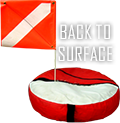A Digger's Dream by Henry Hecker
The lead came from a phone call two weeks ago from one of my construction worker contacts. The guy knew I collected pottery and thought I might be interested in the excavation his company was doing off water Street in Milwaukee. He had found some pottery bottles with "funny names" like Liebscher, Schwartz, Lill, and Calgeer. Would I be interested? WOULD I BE INTERESTED?! Forty-five minutes later, I was in his garage closing a deal for eight Milwaukee pottery beers at $8 apiece. Since I had been so fair with the prices, he asked me if I wanted to dig on the site the next weekend with him. He believed that there was plenty of digging left.
Well, an offer like that is certainly worth sacrificing Saturday morning cartoons for, so after a few microseconds of consideration, I accepted the invitation. It was obvious this guy was going to be a very close friend.
Saturday morning finally came and I met this fellow at the site. It was hard to see the excavation from the street. His foreman had given him permission to dig all we wanted in one corner of the lot, an area about 50 feet by 75 feet, as long as we filled our holes when we were done. We could even use the company back hoe!
While he fired up the back hoe, I surveyed the site. My excitement mounted as I started to pick up shards of more pottery beers and decorated stoneware lying right on the surface. It appeared to me that about 10 inches of topsoil had been scraped off and piled at the north end of the lot. I hopped up on the top of the pile and quickly spied an I.S. Meister pottery sticking out of the pile. It took me abut five minutes to chip it out of the frozen dirt. It was oddly miss shaped as though the potter had goofed when turning it. Oddly enough, a couple of the bottles I had bought a few days before had the same feature. Potter's rejects? Just then, I heard a yell from my construction buddy. The first scoop was coming out right now. I ran over to watch as he carefully shook the scoop. Out poured hundreds of stoneware shards, many pieces with cobalt glaze decoration. Several pieces bore that familiar oval. Yup, the ovals were CHAS. HERMANN MILW.
The second scoop was gouged out. Two feet down was a layer of solid pottery and stoneware fragments and WAIT A MINUTE! A 2 or 3 gallon ovoid jug was protruding out of the side of the hole. I jumped down into the trench. The jug was below the frost line and came out easily. The handle was gone but a couple of wipes with my gloves told me we had a real gem. It was marked Hermann with a beautiful bird-on-flower decoration. I didn't really care about the damage! Out of the next scoop poured three pottery beers, including a Graf & Madlener with a small cobalt flower decoration. This was similar to one I had missed at a show several years ago. Finally I had one.
Three hours later I was in total ecstasy. We had unearthed forty-seven pottery beers from all over Wisconsin and Chicago: this total also included five that had names unfamiliar to me. Many had minor imperfections, chips, cracks, light stamps, etc., but at least half looked perfect before cleaning. Also we had three more jugs, two brown Hermanns (one cracked, one perfect) and what was unmistakably the stoneware find of the decade - a double handles field jug (cracked in the back from a kiln blowout) with the following incising "PRESENTED TO DONALD AND TINA ON THEIR WEDDING DAY. FEBRUARY (BLURRED) 79". Finally the haul included seven other decorated stoneware pieces, 3 crocks, 1 cream pot, and 3 churns, in 3 to 6 gallon sizes.
There was no doubt about it! We were on the site of the old Hermann Stoneware Factory and we were digging the discard dump. Old Charles must have had pretty fussy quality control. After some celebratory beers for lunch (I brought) we were back at it. My construction buddy was getting pretty frustrated. He had no interest in the stoneware junk: he wanted to find the good stuff, some glass bottles. I bought his half out of what we had found for $50-a noble gesture on my part. Things did taper off in the afternoon. All we found were two Wisconsin glass Graf hutches and I sold my half to my buddy for $25.
Finally, after about another hour something caught my eye down in the trench, now about 10 feet deep. I jumped down in the hole and picked up what appeared to be some sort of brass artifact all covered with green corrosion. I tapped it against my shovel to knock the dirt and years of crud off of it. Gradually I could make out the letters on the old stamp:
It was unbelievable! This was an original incising stamp used at the Hermann Stoneware Factory! I started to jump up and down-what just hit me on the shoulder? THE SIDES OF THE TRENCH ARE COLLAPSING ON ME. HELP! I CAN'T BREATHE! HELP!
WAKE UP, HENRY! IT'S ALL RIGHT! YOU'VE HAD A NIGHTMARE! IT'S ALL RIGHT! YOU'VE BEEN SCREAMING IN YOUR SLEEP. DIANNE'S HERE. IT'S ALL RIGHT...............APRIL FOOL!
Yes, you've just read "A digger's Dream", submitted by Henry Hecker








